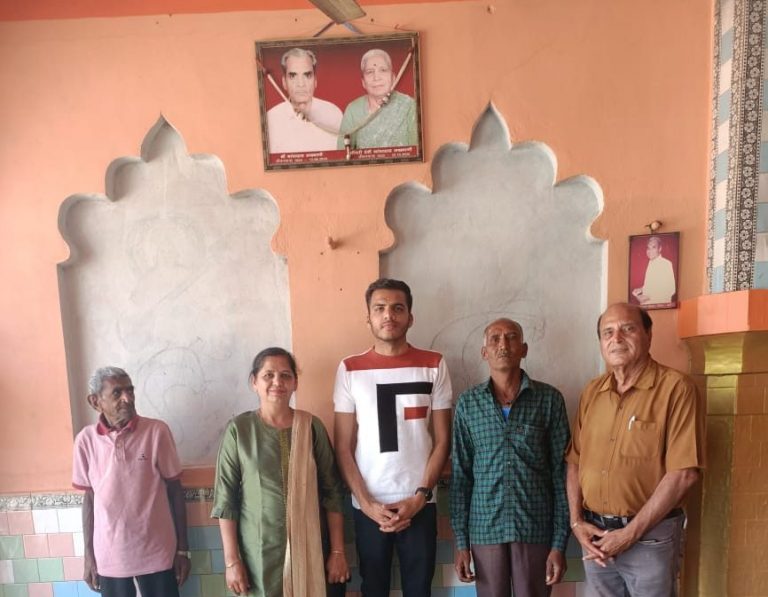
Shri Thanwerdas was so loved and respected by the villagers that when he finally left the village to spend rest of life at home in Bairagarh, they took out bull-cart procession to see him off
By Nasir Aijaz
This is the story of Shri Thanwerdas Chhataldas Lachhwani, the only Sindhi of an Indian village – Ranayal Gaon, in Kalapipal Tehsil, district Shajapur of Madhya Pradesh state of India, where after the few years of the partition, he chose to open a small shop to earn livelihood. The village is part of Ujjjain Division, located 78km east of district headquarter Shajapur, 24km from Kalapipal Gram and 69km from state capital Bhopal.
“The Ranayal Gaon was about 7 to 8km off the main road and my father Thanwerdas used to walk all the way to reach the village shop. During the monsoon rains, he would take his chappals (Flip-flops) in one hand, and would care of possessions put on shoulders, with other,” Nari Lachhwani, narrated the story of his father.
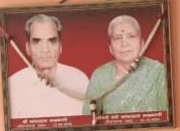
“Although, my father couldn’t understand or speak the language of the village people, but he was determined to make his future in that village,” Nari told from Bairagarh city of Bhopal.
After a few years, Shri Chhabaldas, maternal uncle, Shri Khemchand, father-in-law, and Shri Phhuganmal, brother of Thanwerdas also joined him at the shop, but soon his maternal uncle and father-in-law passed away being very old.
“My father used to visit home for a day or two after every month or two. He spent 52 years of his life in that village from 1953 to 2005. During more than half a century, he created space for him in the hearts of village people for being a soft spoken, loving, honest and serving in his nature,” Nari Lachhwani said.
With the help and cooperation of village people, Thanwerdas built a Shiv Temple in the village. “My father was so loved and respected by the village people that when he finally decided to leave the village and spend rest of life at home, all the villagers held special prayers for him and his brother, and took them in a bull cart procession to see them off at the main road. “The villagers also hanged my father’s framed photo on the temple wall and used to perform Arti, the ritual in which incense and light, typically from an oil lamp, is offered, along with Bhagwan, on daily basis.
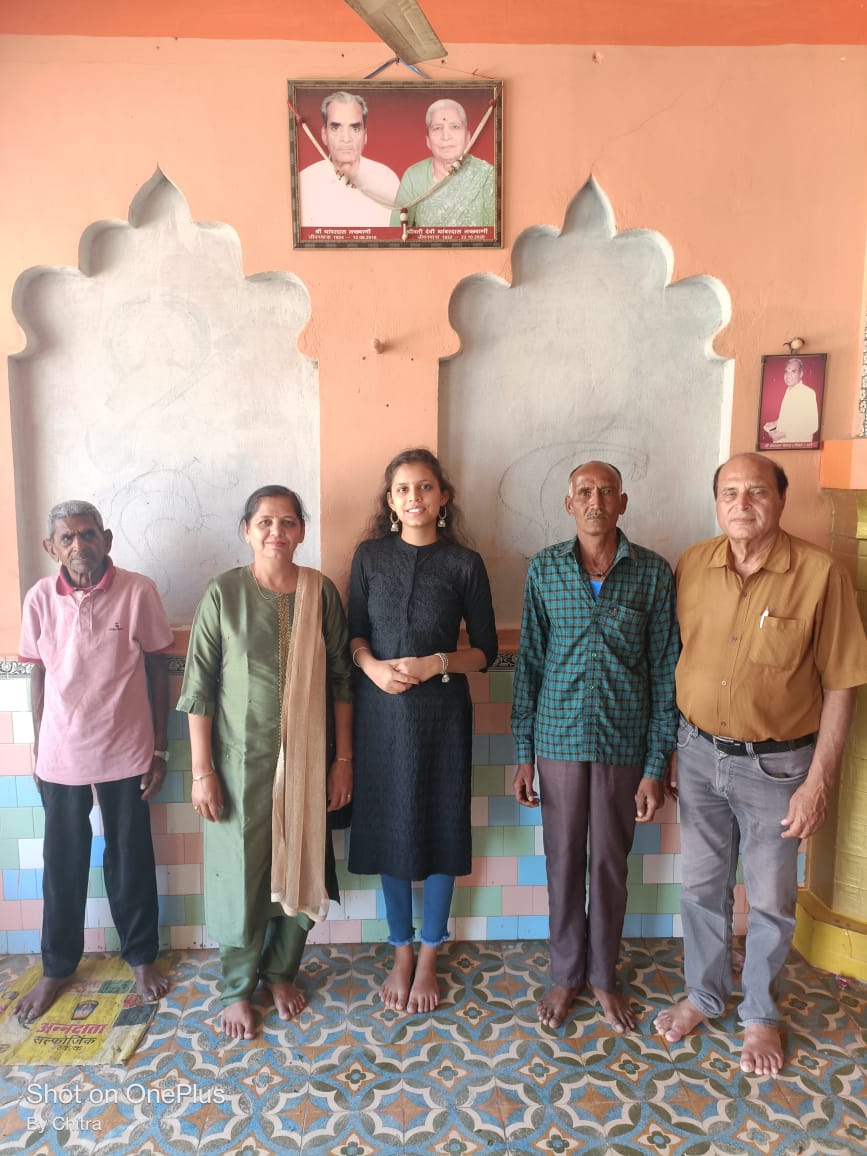
“My father was the only Sindhi who lived in that village, and even today, there is no Sindhi. My father passed away in 2016 and the mother in 2020. Physically, they are not with us, but now their photo is placed in temple, where we use to visit every year for Puja on the occasion of Shivaratri,” Nari Lachhwani shared.
Partition, Migration and Life as Refugee
Nari Lachhwani’s parents and paternal grandparents belonged to Daulatpur town of Taluka Moro, district Nawabshah in Sindh while some of his maternal relatives lived Bhiria town in same district (now Naushehro Feroze district).
“At the time of partition in 1947, my parents and grandparents had to migrate leaving behind their ancestral abode. On the way to India, first they had to stay in Mirpurkhas where they lived as refugee under the open sky in a garden where there was no facility even of latrine and they had to dig holes in the ground for the purpose. Even at the time of deliveries, the women had to hold cloth sheets around the pregnant woman,” Nari told recalling what he had learnt from the grandparents about the miserable conditions they faced.
“Sindhis cursed those who were responsible for the partition,” he said.
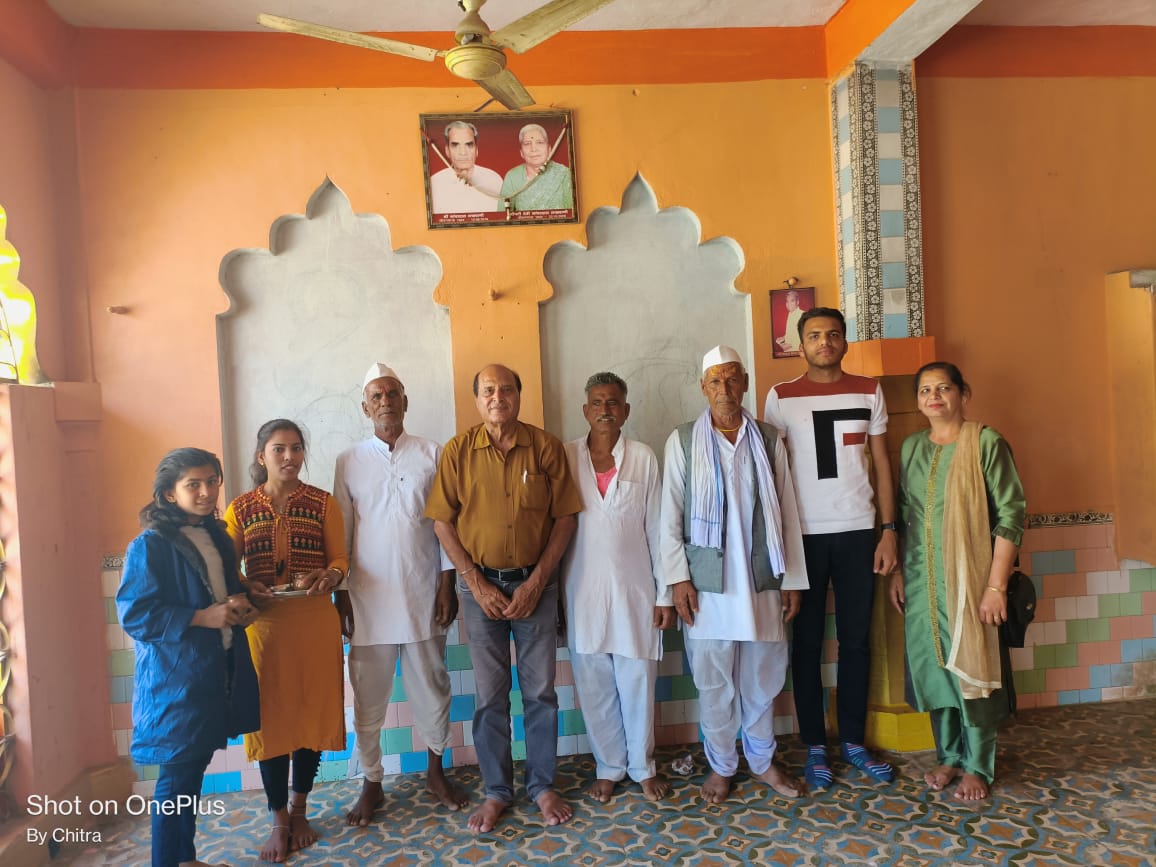 “The refugees were sent to India by train and like thousands of other, my grandparents had to wait for their turn. But that brief period proved like a hell for them as the people robbed them of everything – women’s gold ornaments and other valuables were snatched and even their clothes were not spared. Such incidents happened at railway station and trains. At that time, my mother’s age was hardly 14 or 15 years,” he said.
“The refugees were sent to India by train and like thousands of other, my grandparents had to wait for their turn. But that brief period proved like a hell for them as the people robbed them of everything – women’s gold ornaments and other valuables were snatched and even their clothes were not spared. Such incidents happened at railway station and trains. At that time, my mother’s age was hardly 14 or 15 years,” he said.
Somehow, Nari Lachhwanis parents and grandparents reached at Deoli Refugee Camp traveling from Ajmer and Nasirabad. Nari was born on August 3, 1949 at Deoli Camp. He was first child of his parents.
“After two months of my birth, my ancestors and all other inhabitants of Deoli Camp were shifted by the Indian authorities to Bairagarh Camp, some 600km away near Bhopal in Madhya Pradesh state. It was a cantonment area vacated by the military. We lived in barracks having no source of livelihood,” Nari shared the painful memoirs.
“My grandfather Shri Chhataldas and father Shri Thanwerdas started selling cloth, first by setting up makeshift stalls and then small shops for earning livelihood but failed to meet the needs of whole family. It was the time when my father left the home in search of a village where he can setup business with small investment.”
“Shri Gianchand Asudomal Talukchandani, one of my father’s maternal cousins, had opened a small cloth shop in Amla Village located between Bhopal and Indore. Acting on his advice, my father too chose another village – Ranayal Gaon, some seven to eight kilometers away from Amla Gaon, in 1953 to open a small shop.”
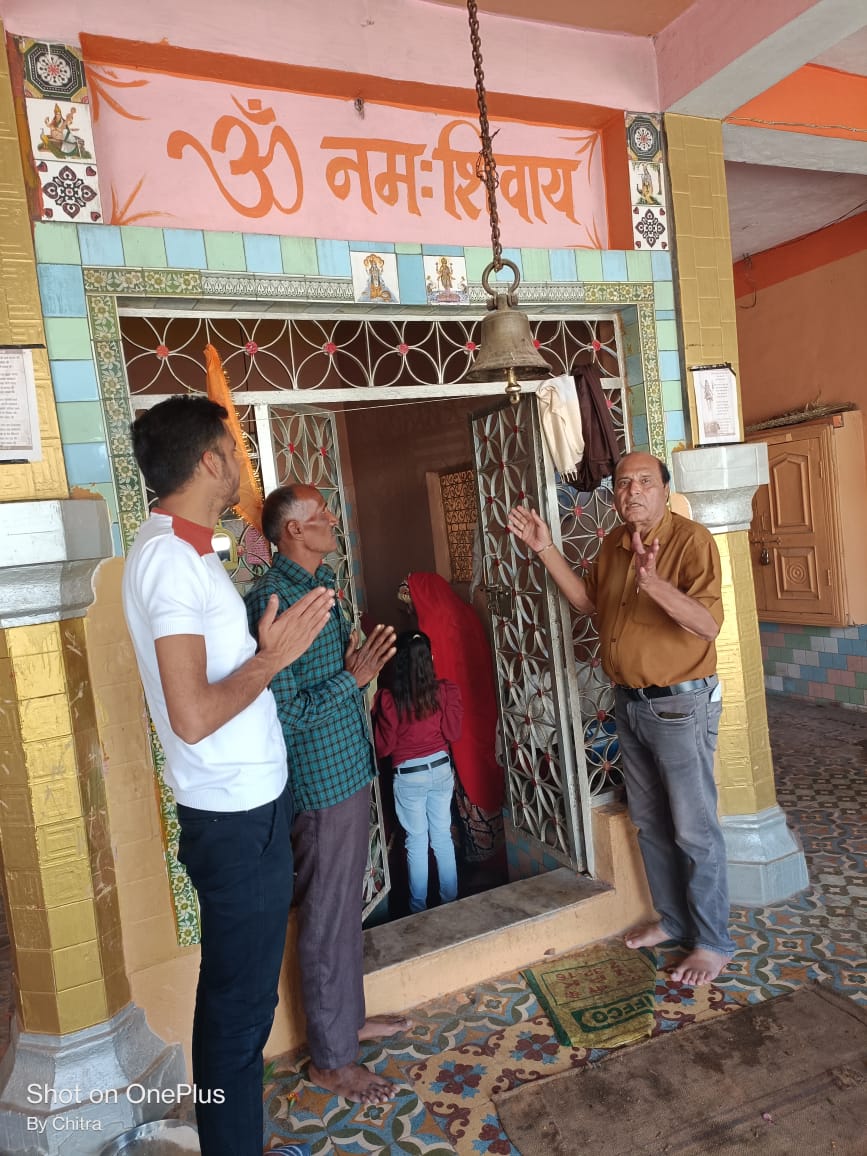
“Soon my grandfather passed away and the entire responsibility of looking after the family had fallen on my grandmother Shrimati Pari Chhataldas Lachhwani, who was really an Iron Lady and moved heaven and earth to meet the needs of the family. We were nine members of family – her daughters-in-law, grandsons and granddaughters, and she cared all of us despite hardships,” Nari recalled.
“After her death in 1970 at the age of 55 plus, my mother Shrimati Devi Thanwerdasassumed the responsibilities,” Nari said.
“Our ancestors, and parents were like Bhagwan for us. We feel ourselves orphans without them.”
Nari and his five brothers and three sisters studied in government school, where they were also taught Sindhi besides science and other subjects. “That’s why we can read and write Perso-Arabic Sindhi,” Nari told, who himself was in a government job as well as served a radio announcer in Bairagarh, where around one hundred thousand Sindhis from Sahiti area of Sindh are settled.
__________________
All photos provided by Mr. Nari Lachhwani
[…] role of an elder of a Sindhi family, migrated from Sindh and settled in India, was played by Mr. Nari Lachhwani, a renowned poet, singer and artist from Hirdaram Nagar city of Madhya Pradesh. His wife’s […]